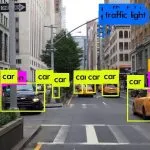In subtle but significant ways, AI has had a game-changing impact on humankind. From Smart Phones to Smart Cars to Smart Homes, AI is all around us, in almost everything we do. It is even expected to make greater advances and developments during the next decade, making the world an even better place. The effect of AI will soon touch every part of our personal and societal lives, with huge applications assisting industries like healthcare, energy, automotive, manufacturing, and more. While AI has not yet progressed to the point of building gadgets, it has improved the planet by tackling numerous complex challenges. Artificial Intelligence solutions make it much easier to focus on more essential things in life by looking after your day-to-day needs. So, let’s discuss some of the important artificial intelligence solutions to the real world problems.

Artificial Intelligence Solutions
Healthcare and Diseases
One of the most significant advantages of AI is its capacity to sift through huge amounts of data in a short amount of time. This aids researchers in determining areas of concentration for their own studies. Traditional research techniques are quickly becoming insufficient to help scientists and researchers keep up with global challenges that AI may be able to assist in by solving and identifying important insights among the billions of papers scattered throughout the globe. New discoveries provide new information that will help researchers and experts to develop new medication targets and therapies to tackle the world’s most lethal diseases.
AI in healthcare may also utilize data to forecast which patients would benefit from a specific treatment, resulting in a highly tailored strategy that saves time and money, thus helping in treatment outcomes. It is also able to assist in minimizing the effects of the significant shortage of skilled clinical professionals by taking over some of the diagnostic tasks that are traditionally performed by humans. Artificial intelligence is assisting in the advancement of radiomics, a cutting-edge discipline that uses image-based algorithms to evaluate the phenotypic and genetic features of malignancies. Routine requests, such as medication refills and result information, could potentially benefit from artificial intelligence. It may also make it easier for users to get through their to-do lists by prioritizing things that actually deserve the clinician’s attention.


Buying and Selling
Physical buying experience might as well become easier than online shopping soon, owing to the A.I. technology. Online buying algorithms are all the rage these days, but the astonishing visual discovery feature efforts could be a game-changer for the retail and shopping industries. Inventory management for product inventories in warehouses is also aided by technology. One of the most common and well-known applications of machine learning in everyday life is recommender systems. Predicting customer behavior continues to remain popular, as businesses use AI to recommend the best things to their customers. Search engines, e-commerce websites, entertainment platforms, and a variety of web and mobile apps all make use of these systems. Previous purchases, item views, clicks, previous purchases, contextual data like location, language, device, and browsing history are often used to make these recommendations. All of these suggestions are based on an examination of customer behavior data by a machine learning algorithm. Businesses may use recommender systems to enhance traffic, customer engagement, lower churn, distribute relevant content, and increase revenues.
Identifying the likelihood of conversion to the premium version can be predicted based on a user’s pattern of activity during a trial period and the prior behaviors of all users. Businesses have access to a vast amount of marketing-relevant data from a variety of sources, including email campaigns, website traffic, and lead information. Individual marketing offers and incentives can be accurately predicted using data mining and machine learning. In this way, AI even solves the biggest of the issues that any marketer faces like client segmentation, churn prediction and customer lifetime value prediction.


Security and Fraud
AI may be used to improve cybersecurity in a proactive and predictable manner. It may be used to analyze millions of files and assaults to figure out what makes them tick. Companies can prevent future attacks by understanding mathematical DNA.
In today’s world, fraudulent banking transactions are fairly widespread. However, investigating every transaction for fraud is not practicable, resulting in a bad customer service experience. Fraud detection and prevention has always been a difficult task, but AI is assisting in this endeavor. In a variety of industries, AI solutions are being used to prevent fraud and improve security. In banking, machine learning may be used to create super-accurate predictive maintenance models that can recognize and prioritize all types of potential fraudulent actions. Businesses can then build a data-driven queue for high-priority incidents to be investigated. It aids in improving customer satisfaction by safeguarding their accounts and ensuring that valid transactions are not challenged.


Spam detection is another one of Machine Learning’s best and most prevalent applications. Neural networks utilize content-based filtering to identify unwanted emails as spam. These neural networks, which are quite similar to the brain, can detect spam emails and messages.
Environment Related Applications
Artificial intelligence (AI) has the potential to alter and improve animal protection. Tracking animal movements is an example of this, as technology allows researchers to monitor where they go and, as a result, which habits need to be safeguarded.
Cities and towns can benefit from AI-based clean energy solutions. Companies in the energy business can use AI to go through massive datasets in order to predict and adapt to specific events. They can cut operational expenses and avoid problems by boosting automation, reducing downtime, optimizing asset management, recognizing efficiencies, and improving operational performance, among other things.


Agriculture is another sector that few people are aware of where AI is being used. From sensors that track the health of individual cows in a herd to fruit-picking robots, artificial intelligence is now present in everything. As the world’s population grows, artificial intelligence (AI) promises to remove some of the guesswork from farming and unleash nature’s inherent potential, allowing us to raise inexpensive, healthy food for everyone.
Rapidly synthesizing and disseminating information can assist governments in making better real-time decisions on critical social issues, the environment, and the economy. They can put sensors on anything from mountains to streetlights, and by using AI to analyze the data, governments can do things like make cities more livable, prevent crime and terrorist attacks, reduce poverty, and better comprehend climate change.
Conclusion
AI can spot patterns, relationships, and trends, as well as to detect inefficiencies, carry out plans, learn and improve, anticipate future outcomes based on historical trends, and help people make informed decisions. While AI can think like and for humans, intuitive decision-making will not be supplanted by AI anytime soon. With machine learning, intelligent marketers can reduce the guesswork that comes with data-driven marketing.
Algoscale is one of the leading Artificial Intelligence and Data Analytics Companies in the USA, helping businesses become more agile and smart by adopting creative and effective artificial intelligence solutions. Our artificial intelligence solutions combine business, development, and operations data to provide actionable insights and a unified perspective of our clients’ changing business environments, allowing them to take advantage of automation and improve business outcomes over time.












